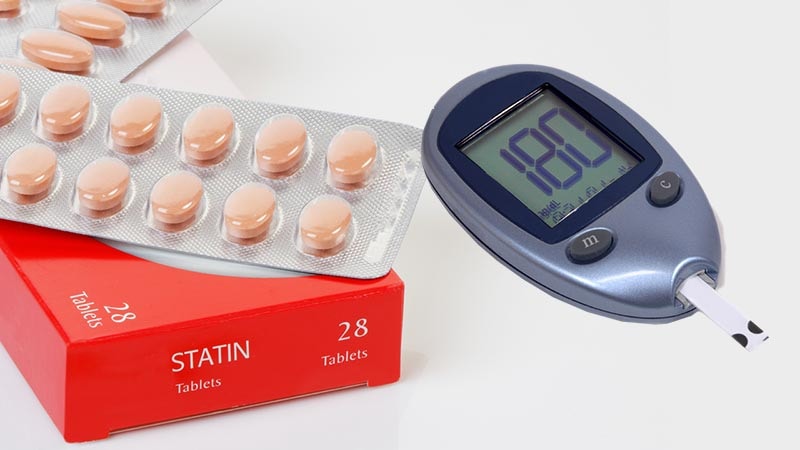Statin Use and Type 2 Diabetes Risk Study Analysis
Core Concepts
Statin use may increase the risk of type 2 diabetes, but the cardiovascular benefits often outweigh this risk.
Abstract
The content discusses the association between statin use and type 2 diabetes risk, highlighting various studies and expert opinions on the topic.
Studies on Statin Use and T2D
- FDA warning in 2012 about increased risks of high blood glucose and A1c levels.
- Recent meta-analyses and observational studies support the cardiovascular benefits of statins.
Expert Opinions
- Dr. Ishak Mansi emphasizes that the risk of diabetes should not deter statin treatment.
- Dr. Jill Crandall highlights the significant cardiovascular benefits of statin treatment.
- Dr. Byron Hoogwerf suggests that statin benefits outweigh the risk of diabetes.
Latest Study on Rosuvastatin vs. Atorvastatin
- Analysis of the LODESTAR trial comparing diabetes risk between rosuvastatin and atorvastatin.
- Rosuvastatin associated with a higher incidence of new-onset T2D and cataract surgery.
- Dr. Myeong-Ki Hong emphasizes the need for further research on statin outcomes.
Expert Comments
- Dr. Steven Nissen questions the study's insights and dosing methodology.
- Dr. Seth Shay Martin advises caution in interpreting the study results.
Recommendations and Guidelines
- Considerations for shared decision-making before starting statin therapy.
- Importance of screening, nonstatin therapies, and lifestyle modifications to mitigate risks.
Customize Summary
Rewrite with AI
Generate Citations
Translate Source
To Another Language
Generate MindMap
from source content
Visit Source
www.medscape.com
Another Study Ties Statins to T2D: Should Practice Change?
Stats
"The percentages of new-onset diabetes and cataract are in line with previous studies regarding statin therapy in patients with atherosclerotic cardiovascular disease." - Dr. Myeong-Ki Hong
"The mean daily doses of statins were somewhat below target for secondary prevention." - Dr. Seth Shay Martin
"The P-values for diabetes incidence were marginal (very close to P = .05)." - Dr. Steven Nissen
Quotes
"This potential adverse effect of diabetes with statin use should not be a barrier to starting statin treatment when indicated." - Dr. Ishak Mansi
"The study should not influence prescribing." - Dr. Seth Shay Martin
"The similar efficacy is not surprising given the open-label dosing with relatively similar effects on lipids." - Dr. Steven Nissen
Key Insights Distilled From
by Marilynn Lar... at www.medscape.com 10-30-2023
https://www.medscape.com/viewarticle/997884
Deeper Inquiries
How can individual patient risk factors influence the choice of statin therapy?
Individual patient risk factors play a crucial role in determining the most suitable statin therapy. Factors such as age, gender, family history of cardiovascular disease, presence of comorbidities like diabetes or hypertension, and overall cardiovascular risk profile can influence the choice of statin. For example, patients with a higher risk of developing diabetes may benefit from statins with a lower risk of exacerbating diabetes, such as pravastatin or simvastatin. Additionally, patients with a history of statin intolerance or muscle-related side effects may require alternative statin options or non-statin therapies to manage their cholesterol levels effectively.
What are the implications of the study's dosing methodology on the interpretation of results?
The study's dosing methodology, which allowed participants to use varying doses of rosuvastatin and atorvastatin, can impact the interpretation of results. The use of different doses may lead to variations in the effectiveness and side effect profiles of the statins, making it challenging to directly compare their outcomes. Additionally, the study's reporting of median doses after three years rather than consistent dosing throughout the study period can introduce bias and affect the reliability of the findings. The relative dose differences between the statins, especially considering the dose-dependent nature of new-onset diabetes with statins, can further complicate the interpretation of the results.
How can lifestyle modifications impact the risk of developing diabetes in patients on statin therapy?
Lifestyle modifications play a significant role in mitigating the risk of developing diabetes in patients on statin therapy. Adopting a healthy lifestyle that includes regular exercise, weight management, and a balanced diet can help improve insulin sensitivity, glucose metabolism, and overall cardiovascular health. For patients on statin therapy, lifestyle modifications can complement the benefits of statins in reducing cardiovascular risk while also potentially reducing the risk of statin-associated diabetes. By focusing on lifestyle changes, patients can address modifiable risk factors for diabetes, potentially offsetting any adverse effects of statins on glucose metabolism. Encouraging patients to engage in healthy behaviors can not only improve their overall health but also enhance the effectiveness of statin therapy in managing cholesterol levels and reducing cardiovascular risk.
0
